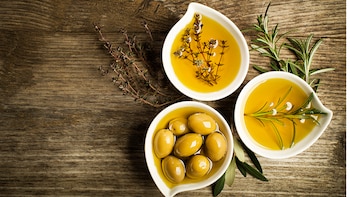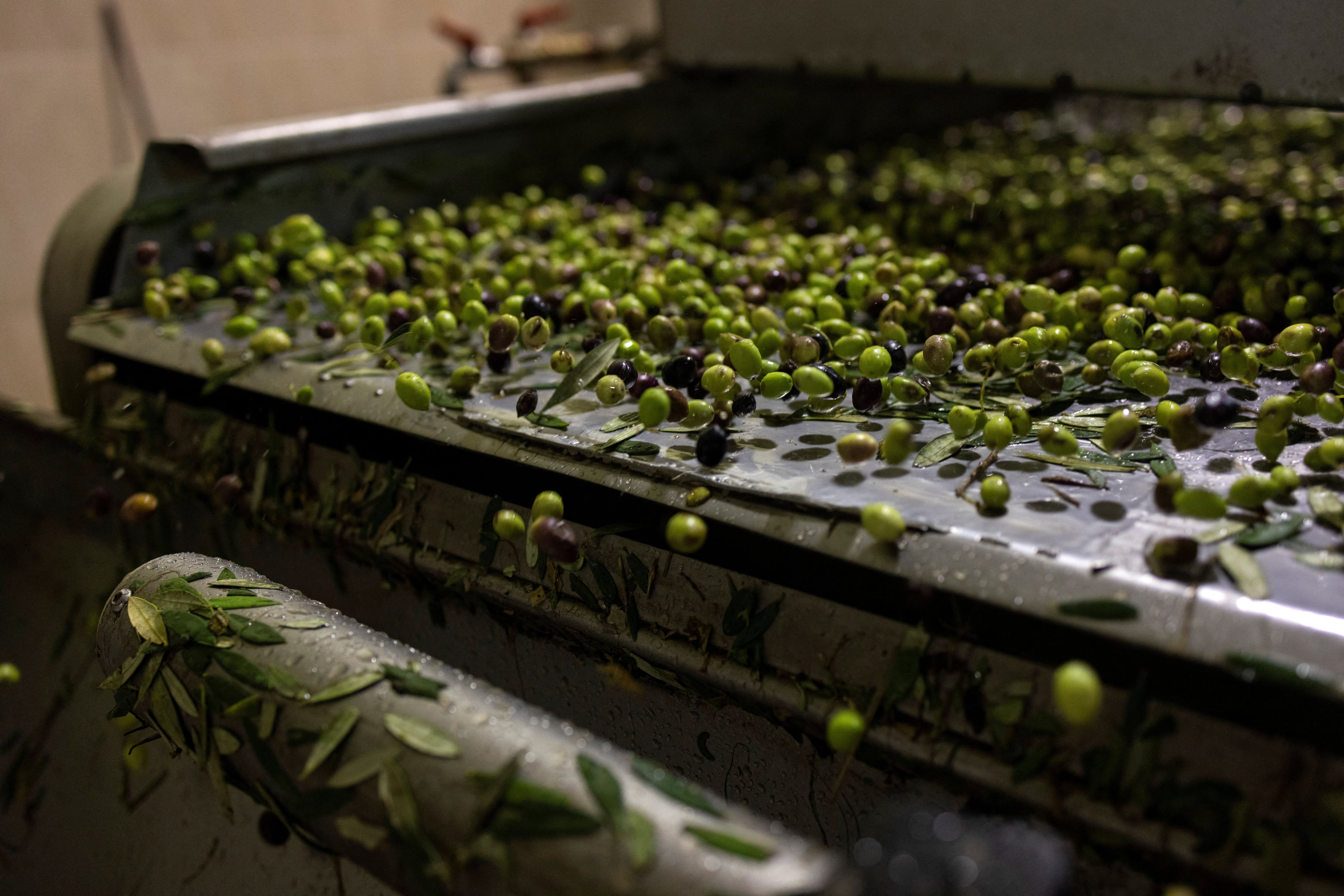
Extra virgin olive oil, the pampered child of the top-rated Mediterranean diet, not only imparts silky delight to food, but has become a superfood analyzed in hundreds of scientific studies. Research published in the New England Journal of Medicine, The BMJ and The Journal of American College of Cardiology link increased consumption of extra virgin olive oil with a lower risk of cardiovascular disease and other major pathologies.
The U.S. Food and Drug Administration recommends two scoops a day for health benefits. So, we should pour it, right? Not so fast. According to Dr. Caldwell Esselstyn, cardiovascular surgeon and author of the book Preventing and Reversing Heart Disease, who participated in the documentary Forks Over Knives (the feature film that spreads the secrets and benefits of the vegetarian diet), he has prescribed a plant-based diet, whole and oil-free foods for patients with severe heart disease.
And whether you call it a raw plant-based diet (WFPB) or a Forks Over Knives diet, Esselstyn is adamant: “Oil-free.” The consumption of oil, he says, even extra virgin olive oil, damages endothelial cells that regulate blood flow. Do you want healthy and happy endothelial cells? The key is to give up oil, Esselstyn believes. So who is right?

Esselstyn is based on a 1990 study, as well as on his own findings published in a journal article entitled: “A Way to Reverse CAD” ( coronary artery disease). Both studies found that oil consumption reduces flow-mediated vasodilation, which means that blood flow is slower.
Without oil is not the same as without fat. Fat is one of the macronutrients that our body needs to function optimally, and Esselstyn does not suggest eliminating all fats. Instead, he and his colleagues, including Dr. Dean Ornish and Dr. T. Colin Campbell, say that fats should come from whole foods high in healthy fats, such as avocados, nuts, and seeds. That provides beneficial fat and dietary fiber. “Fiber helps us regulate digestion and absorption,” nutritionist Jay Ziebart said in dialogue with HuffPost.
No one disputes the rich taste of olive oil. Some proponents of the oil-free diet even say that's the problem: that olive oil makes food taste so good that it encourages overeating. Numerous studies contradict that suggesting a little olive oil helps to feel full.
Ziebart said that for his clients, “most of whom have been struggling for many years to lose weight and regain their health, oil is simply not worth it.” Together with Forks Over Knives, the expert offers easy exchanges. Water or vegetable broth substitute olive oil for cooking, even sautéed, and applesauce or banana puree are substitutes for baking. They offer recipes, including oil-free lasagna. Isn't it attractive? “Neither is heart surgery,” Esselstyn would argue. Health is one of the main reasons why people adopt WFPB oil-free food.

This is where the Mediterranean diet and the researchers at Forks Over Knives agree. Both sides believe that processed food does not do the body any favors. The healthiest foods are minimally processed whole foods: fruits and vegetables, beans, whole grains, nuts, and seeds.
Olive oil is loaded with polyphenols, which have anti-inflammatory properties. Oil of any kind is high in calories, with around 120 calories per tablespoonful. So if you should use oil, extra virgin olive oil, a monounsaturated fat, surpasses everyone else in terms of health benefits. Yes, coconut fans, it's even better than coconut oil. As Connie Diekman, nutritionist and author of The Everything Mediterranean Diet Book, explained: “Coconut oil is not a healthy oil because of its saturated fat content.”
Diekman and other advocates of the Mediterranean diet do not argue about the calories in olive oil. They point to something so positive that it makes calories worthwhile: polyphenols. “They're the most important thing you eat than you've ever heard of,” said Dr. Simon Poole, author of The Olive Oil Diet and The Real Mediterranean Diet. Polyphenols are plant compounds with “unique properties,” he said. “In our bodies, they serve as antioxidants, as anti-inflammatories,” Poole explained. And the extra virgin olive oil is loaded with them.
Fun fact: olives are fruits, botanically speaking. Extra virgin olive oil is made from crushed olives, minimally processed, so you basically get pure fruit juice with a pure and powerful olive flavor. That's good. Extra virgin olive oil is rich in antioxidants and polyphenols. “You can taste polyphenols in olive oil,” Poole said. “It is that quality that is slightly bitter, spicy and valued by the tasters.”

One of the olive oils with the highest polyphenol content, Olio Piro from Tuscany, has won more than 20 awards, including the best Flos Olei 2021 in the category of mixed extra virgin olive oil, with medium fruit. The olives are picked by hand to avoid bruising and are crushed on the day of harvest, keeping the nutrients intact. While most supermarket brands contain between 20 milligrams and 100 mg of polyphenols per kilogram, Olio Piro peaks at 700 mg.
Olio Piro producer Romain Piro, his wife Livia and their two children consume around 50 liters of extra virgin oil each year. Exactly how our bodies metabolize polyphenols and how polyphenols interact with other plant nutrients is still being studied. But if the Piros are any indication, all those polyphenols are doing something right. The family is the image of resplendent good health: the best advertisement for your product.
Esselstyn, who has spent years on a WFPB oil-free diet, also looks great. And he's 88. Both diets are good cases, so should we call it a truce? Poole said there are good reasons for peace. “We need to find what we can say together that is good about diets. We need to talk about positive nutrition,” he said.
So, can't we just focus on areas where the WFPB and Mediterranean diets agree? Whole foods are good for us, and the issue of olive oil is still up for debate. However, Esselstyn is reluctant to pour olive oil over troubled waters. “When severely ill patients with cardiovascular disease are taken and given a plant-based whole-food diet without oil, not only does the disease stop, but it reverses it,” he warned. “Not a single study with oil that I know of does that. I'll stick with what we said.”
Poole, the Piros and the Mediterranean diet tribe will continue with olive oil. “You can't get extra virgin olive oil out of the Mediterranean diet,” Poole said. Maybe they're both right. There is no diet that does everything for everyone, according to Diekman. “It's about you, as an individual, knowing your health risk and finding a healthy eating pattern that you can maintain,” the expert concluded.
KEEP READING:
Últimas Noticias
Debanhi Escobar: they secured the motel where she was found lifeless in a cistern

The oldest person in the world died at the age of 119

Macabre find in CDMX: they left a body bagged and tied in a taxi
The eagles of America will face Manchester City in a duel of legends. Here are the details

Why is it good to bring dogs out to know the world when they are puppies




